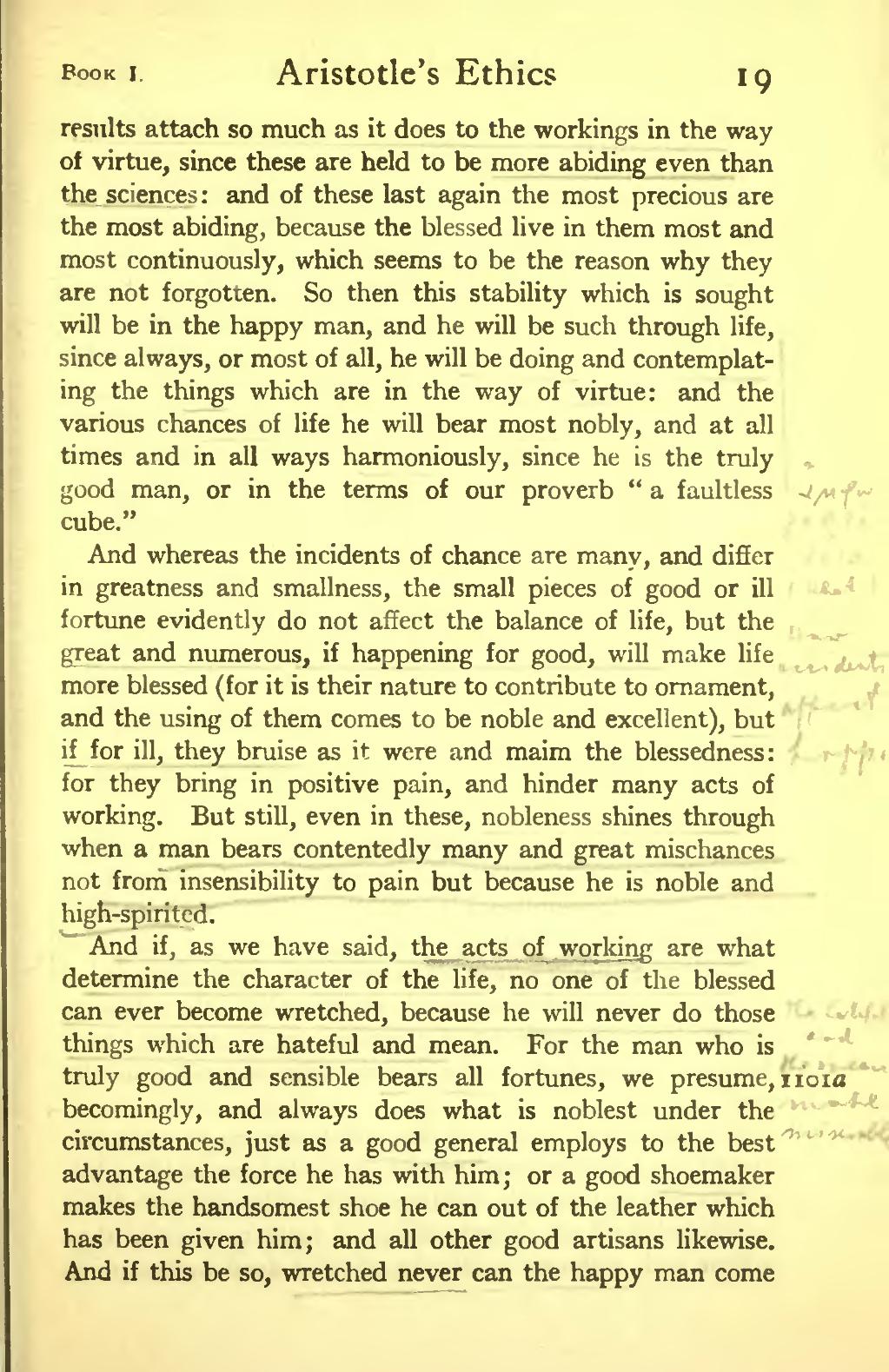results attach so much as it does to the workings in the way of virtue, since these are held to be more abiding even than the sciences: and of these last again the most precious are the most abiding, because the blessed live in them most and most continuously, which seems to be the reason why they are not forgotten. So then this stability which is sought will be in the happy man, and he will be such through life, since always, or most of all, he will be doing and contemplating the things which are in the way of virtue: and the various chances of life he will bear most nobly, and at all times and in all ways harmoniously, since he is the truly good man, or in the terms of our proverb “a faultless cube.”
And whereas the incidents of chance are many, and differ in greatness and smallness, the small pieces of good or ill fortune evidently do not affect the balance of life, but the great and numerous, if happening for good, will make life more blessed (for it is their nature to contribute to ornament, and the using of them comes to be noble and excellent), but if for ill, they bruise as it were and maim the blessedness: for they bring in positive pain, and hinder many acts of working. But still, even in these, nobleness shines through when a man bears contentedly many and great mischances not from insensibility to pain but because he is noble and high-spirited.
And if, as we have said, the acts of working are what determine the character of the life, no one of the blessed can ever become wretched, because he will never do those things which are hateful and mean.1101a For the man who is truly good and sensible bears all fortunes, we presume, becomingly, and always does what is noblest under the circumstances, just as a good general employs to the best advantage the force he has with him; or a good shoemaker makes the handsomest shoe he can out of the leather which has been given him; and all other good artisans likewise. And if this be so, wretched never can the happy man come
